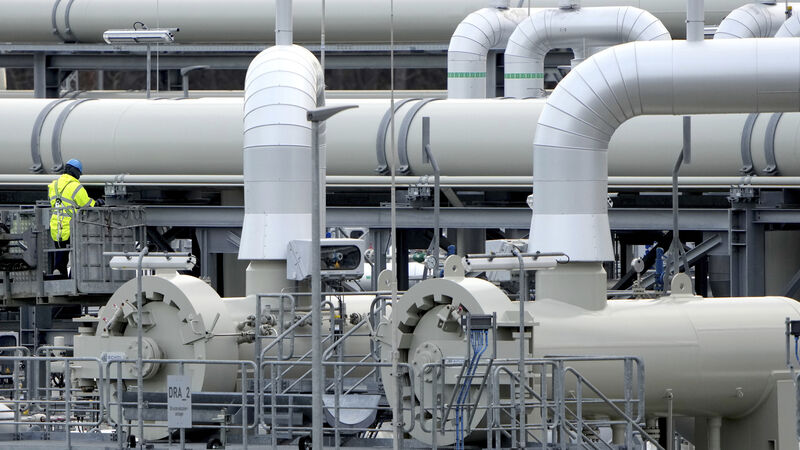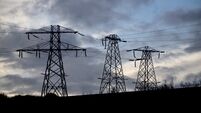Ireland at risk of energy crisis without gas reserve, warns environment minister

Pipes at the landfall facilities of the 'Nord Stream 2' gas pipline are pictured in Lubmin, northern Germany, on Feb. 15, 2022. Picture: AP Photo/Michael Sohn, File
Ireland would have as little as “three days of normal energy supply” if there was a major disruption to our gas supplies, environment minister Darragh O’Brien has said.
He said this was why the Government was supporting the development of a State-led strategic gas emergency reserve in the form of a commercial floating storage and regasification unit, or FSRU, in the Shannon terminal.













